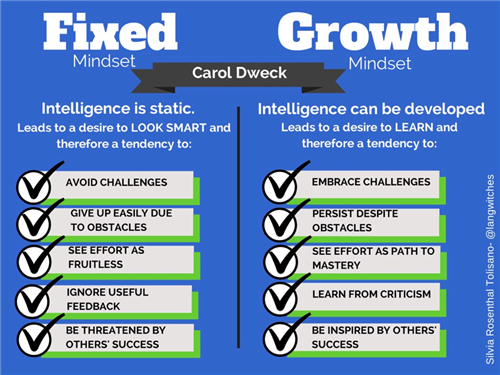Do Changes Make You Want to Run and Hide?
Try These Strategies When Life Throws You A Curveball
Changes are part of life. Changes occur within each of us, and in our families, relationships, workplaces, professions, and communities. We may welcome some changes and dislike others.
How will we meet life’s changes? Will we dance with the changes or run away and try to hide?
We have choices about how we respond. Transition expert William Bridges, PhD (2009) teaches about the differences between changes and transitions. Change is about the situation itself, for example, a new job, a move, graduation, birth of a child, illness, or retirement. In contrast, transition is the human psychological process of adjusting to the new situation or circumstances we face, which involves three phases.
Three Phases of Change (Bridges, 2009):
Phase 1: The Ending – Letting go of the old situation. Acknowledging and dealing with the end, loss or shift.
Phase 2: The Transition or In-Between Time – The wilderness between the old reality of what was and the new beginning. This may be a time of many feelings, such as disorientation, sadness, confusion, distress, relief.
Phase 3: The New Beginning – Making the change work; embracing the new way.
In other words, there is the change, and then there is transition, the process of adjusting to the change: making it work, and optimally thriving as we move beyond it.
Our beliefs about our abilities to respond to change can impact what we achieve in life and work. Do we think we can grow or do we feel stuck? Stanford psychologist Carol Dweck (2006) has researched the ways our beliefs influence the many areas of our lives discovering that all of us have one of two mindsets. If we have a growth mindset, we realize that abilities can be developed and learned – we believe that with time, work, and effort we can walk a path toward opportunity. We can learn, improve, and progress toward our goals. On the other hand, if we have a fixed mindset, we believe that our abilities and capacities to improve are limited, our potential is fixed, and we are stuck with what we see as our deficiencies. With a growth mindset, we can push past obstacles and changes and respond in adaptive and even transformative ways.
Six Approaches to Managing Change
1. If you are experiencing a change or loss, let yourself recognize it. Feel what you need to feel. Seek support. Consider sharing your emotions, thoughts, and reactions with people you trust.
2. Figure out whether you have a growth mindset or a fixed mindset.
- Check out Dr. Carol Dweck’s website, which offers a free self-inventory to Test Your Mindset at https://mindsetonline.com/testyourmindset/results.php.
- Realize you have a choice about your mindset.
- When you notice you’re speaking to yourself with a fixed mindset voice, shift to a growth mindset voice, “I can learn this and build my skills.” “I may not understand this, but I can improve.”
- Then, take action.
3. Identify your strengths to help you move forward through this transition into new beginnings (Niemiec, 2018; Polly & Britton, 2015). For example, if perspective is one of your strengths, you may want to look at the big picture and figure out where this change fits with other aspects of your life. If hope is a strength, you might consider some of the hidden benefits. For more information on strengths, www.viacharacter.org is a great resource.
4. Step in and start somewhere. When we get to a new beginning, it’s time to roll up our sleeves and make the change work. Motivational psychologist Heidi Grant Halvorson recommends that we “seize the moment to act on our goals” (2012). Decide in advance when and where you are going to take an action and do it.
Create a plan to use if you get stuck. This is called if-then planning (Oettingen & Gollwitzer, 2010; Halvorson, 2012). For example, “If I feel stuck, I’ll call (fill in the blank) to offer me encouragement.” If I feel tired while I’m working, I’ll pause, take a few mindful breaths, and remind myself why this is important.”
5. As you consider your next steps, set SMART goals, and take manageable action steps to move forward. SMART goals are Specific and clear, Measurable, Attainable, Relevant and Time-bound.
6. Remember your sense of humor. Laughter can be an effective ally to help you soothe tension and reduce responses to stress.
Resources:
- Bridges, W. (2009). Managing transitions: Making the most of change. Philadelphia, PA: DaCapo Press.
- Dweck, C.S. (2006). Mindset: The new psychology of success. New York, NY: Random House.
- Dweck, C.S. (2006-2010). How can you change from a fixed mindset to a growth mindset?
- Halvorson, H.G. (2012). 9 things successful people do differently. Boston MA: Harvard Business Review Press.
- Niemiec, R. (2018). Character strengths interventions: A field guide for practitioners. Boston, MA: Hogrefe.
- Oettingen, G. & Gollwitzer, P.M. (2010) Strategies of setting and implementing goals: Mental contrasting and implementation intentions. In J.E. Maddux & J.P. Tangney (Eds.), Social Psychological Foundations of Clinical Psychology (pp. 114-135). New York, NY: Guildford Press.
- Polly, S. & Britton, K.H. (2015). Character strengths matter: How to live a full life. Positive Psychology News, LLC., USA.
- The VIA Classification of character strengths and virtues.
Ilene is a Featured Author on PsychologyToday!
Read her blog series Flourish and Thrive: Navigating transitions with mindfulness and resilience.

Are you making decisions based on a growth mindset or a fixed mindset?
Tap into your strengths, callings, and potential to flourish in life and work.
I have a couple of spots open for new coaching clients. If you’d like to discuss how Ilene Berns-Zare Coaching can help you achieve your goals, Contact Illene.
Coaching with Ilene Can Help You Call Yourself to Action
Ilene Berns-Zare, PsyD, PCC, CMC is an ICF Credentialed Professional Coach and Speaker. Ilene helps people live their best lives by bringing mind, body, and spirit into flow with their strengths, callings and potential. She inspires clients to find fresh perspectives and access their full potential as creative, resourceful, whole persons. Find Ilene online and access free resources at http://ileneberns-zare.com.
FREE Discovery Coaching Consultation
How can coaching help you maximize your personal and professional potential? During this FREE telephone consultation, we become acquainted, explain the coaching process, and mutually establish if we would be a good fit as a coaching team. We discuss your objectives, and how coaching can help you bring out the best in yourself as you strive to reach your most important personal and professional goals. Click here to contact Ilene.
In light and empowerment,
Ilene
Please share this blog with anyone who might be interested in reading it!
We would love to hear from you! We are interested in your suggestions for this newsletter, your reactions to this one, or providing more information about coaching.




